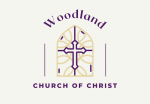BIBLE STUDY BY CHAPTERS
There are 1,189 chapters in the Old and New Testaments of the Bible. One might complete a thorough study of the entire Bible in just under three years by reading a chapter each day. Generally speaking, it is wise to begin your Bible study with the New Testament.
Study the Bible by Chapters
Carefully read the entire chapter.
Give each chapter a heading that conveys the primary ideas it will cover.
Create a brief outline after reading the text again.
Any theological or practical issues in this chapter should be noted.
BIBLE STUDY BY PARAGRAPHS
A paragraph is a collection of sentences that expresses a thought. In writing, as the focus shifts, the author often starts a new paragraph. In this Bible, the first sentence of a paragraph is denoted by a verse number in bold. This type of paragraph-by-paragraph Bible study is known as analytical Bible study.
Find the primary idea or subject of the paragraph by carefully reading it.
Rewrite the Text
It is frequently helpful to rephrase the text in order to identify the relationships between the relevant words and sentences in this paragraph.
Make an Outline
It is straightforward to create an outline from the text you have now changed so that you can see how the various paragraph components relate to one another.
Use a Concordance
You can avoid making any errors about the true nature, requirements, and outcomes of prayer in accordance with God’s will by comparing other passages of Scripture that teach about prayer. For example, you can look up important words that appear in this paragraph in the concordance, such as the words “hypocrites” and “heathen.”
BIBLE STUDY BY VERSES
The majority of the Old Testament and portions of the Gospels are historical portions of the Bible, and each verse may have just one clear interpretation.
However, there are other verses in both the Old and New Testaments that are packed with important Bible teachings and necessitate more study. You can study a single Bible verse in a variety of ways.
Study the passage based on the verbs inside.
Through the people presented, study a verse.
Look for the profound truths that a passage reveals as you study it.
BIBLE STUDY BY BOOKS
You will be prepared to study the Bible by books once you have started studying it by chapters, paragraphs, or verses. Bible book study can be done in a variety of ways.
The inductive technique is one of them.
A Bible book’s contents are studied in-depth using this technique, and general conclusions or principles about the book’s contents and purpose are then drawn from the details.
The synthetic method is a different approach to reading a book.
In order to get a general understanding of the Bible book’s principal themes and purpose without paying close attention to the minutiae, one reads it numerous times. When a Bible book recounts the history of a country or a person during a specific era, the study of that book can occasionally turn into a historical study (although it can be difficult to distinguish between the two methodologies).
BIBLE STUDY BY WORDS
There are two effective and beneficial methods for studying important concepts or phrases in the Bible.
Word study by Bible books.
In specific Bible books, certain words have special importance. You’ll find it enlightening and motivating, for instance, to count the occurrences of the terms “believe” and “belief” in the Gospel of John as a whole and by chapter. You can see why Bible scholars assert that John 20:31 expresses the author’s intention for the Gospel of John by quickly reading the book and noting every instance where the words “believe” and “belief” appear.
General word study.
This Bible’s excellent concordance and index will be of considerable use. You can quickly become familiar with the big beliefs of the Bible and comprehend the great theological truths that the Bible discloses via the study of famous Bible terms. You could start by studying the word “grace” in the concordance.
BIBLE STUDY BY TOPICS
The study of important topics or subjects, such as Bible prayers, Bible promises, Bible sermons, Bible songs, Bible poems, and so forth, is closely tied to the process of word study.
Another option is to read quickly through the Bible and seek for any mentions of rivers, seas, or mountains. For instance, Abraham’s adventures on the mountaintop make for an exciting study. Rapidly reading through the Gospels and Epistles while searching for the Lord’s instructions for us is another difficult study.
BIBLE STUDY THROUGH BIOGRAPHY
The Bible is a collection of accounts of God making Himself known to and through humans. Such biographical essays can be found in abundance in both the Old and New Testaments.

